Early detection of cancer is crucial in improving treatment outcomes and increasing survival rates, offering hope and a chance at a healthier future. This blog will discuss the profound significance of early detection, empowering you with the knowledge to take charge of your health.
Understanding Early Detection
Early cancer detection involves identifying the disease in its developing stages, often before noticeable symptoms arise. This proactive approach to cancer care is important for several reasons:
- Higher Treatment Success Rates: Early cancer detection often means it’s localized, making treatment more effective and increasing the chances of complete eradication.
- A Wider Range of Treatment Options: Early-stage cancer allows for less invasive treatments, like targeted therapies or minimally invasive surgeries, which typically have fewer side effects.
- Significantly Improved Survival Rates: Early diagnosis greatly enhances survival chances, offering better long-term outcomes and quality of life.
Methods of Early Detection
A multifaceted approach is necessary in the fight against cancer. Several methods contribute to early detection, providing individuals with the tools they need to stay one step ahead:
1. Regular Cancer Screenings: Your Best Defense
Screenings are tests conducted on seemingly healthy individuals to detect potential cancer risks or the presence of precancerous cells. These tests act as an early warning system, allowing for timely intervention. Standard cancer screenings include:
- Mammograms: These specialized X-rays help detect breast cancer in its early stages, even before lumps can be felt.
- Pap Tests: This screening test examines cells collected from the cervix to detect cervical cancer or precancerous changes.
- Colonoscopies: This procedure allows doctors to visualize the inside of the colon and rectum, detecting polyps or colorectal cancer early on.
2. Genetic Testing
Genetic testing can be an invaluable tool for individuals with a family history of cancer. It helps identify inherited gene mutations that might increase the risk of developing certain cancers. With this knowledge, you can work with your healthcare providers to develop personalized screening plans and take preventive measures.
3. Self-awareness and Regular Check-ups
Stay alert to changes in your body, such as unexplained weight loss, fatigue, unusual bleeding, or bowel changes. Regular check-ups with your doctor are vital for discussing concerns and ensuring timely examinations.
The Role of Awareness and Education
Raising awareness about early detection of cancer is paramount in turning the tide against this disease. Public health campaigns, community outreach programs, and readily available educational resources play a vital role in:
- Dispelling Myths and Misconceptions: Educating people about the benefits of early cancer detection combats misinformation and empowers informed health decisions.
- Encouraging Proactive Healthcare: Regular screenings should be as routine as dental check-ups, encouraging individuals to prioritize early detection in their healthcare.
- Supporting Research and Innovation: Supporting cancer research drives innovation in early detection and treatments, helping to save lives.
Embracing Hope and Taking Action
Early detection of cancer is a vital step toward effective treatment and hope. By prioritizing proactive care, staying informed, and supporting research, we can work toward a future where cancer is caught early and treated successfully. Early detection saves lives.

